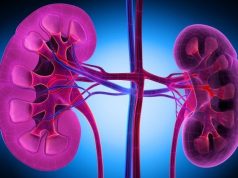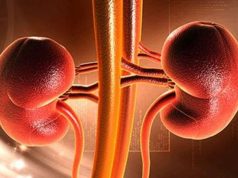Risk for AVF failure significantly higher for patients with higher baseline LGI, independent of age, sex, CV risk factors
By Elana Gotkine HealthDay Reporter
MONDAY, April 22, 2024 (HealthDay News) — For patients with end-stage kidney disease (ESKD), a high preoperative leukocyte glucose index (LGI) is associated with arteriovenous fistula (AVF) failure, according to a study published online April 1 in the Journal of Clinical Medicine.
Adrian Vasile Muresan, Ph.D., from the George Emil Palade University of Medicine, Pharmacy, Science and Technology of Targu Mures in Romania, and colleagues examined the impact of LGI on long-term primary patency of AVF following initiation of dialysis in 158 patients with ESKD. AVF failure, defined as the impossibility of performing chronic dialysis due to severe restenosis or AVF thrombosis, was examined as the primary end point.
The researchers found that the prevalence rates of atrial fibrillation and diabetes were higher in patients with AVF failure, and they had a higher LGI value. In a receiver operating characteristic analysis, the strongest association with the outcome was seen for LGI, with an area under the curve of 0.729 and an optimal cutoff of 0.95 (sensitivity and specificity of 72.4 and 68 percent, respectively). Patients in the highest versus the lowest tertile of LGI had a significantly higher incidence of AVF failure in Kaplan-Meier survival analyses. The risk for AVF failure during follow-up was significantly higher for patients with higher baseline LGI values (hazard ratio, 1.48); the association was independent of age and sex, cardiovascular risk factors, and preoperative vascular mapping determinations (hazard ratios, 1.65, 1.63, and 3.49, respectively).
“LGI can be used as a potential biomarker to identify patients from risk groups that require more careful monitoring of AVF in order to improve the management and care of patients with ESKD,” the authors write.
Copyright © 2024 HealthDay. All rights reserved.








